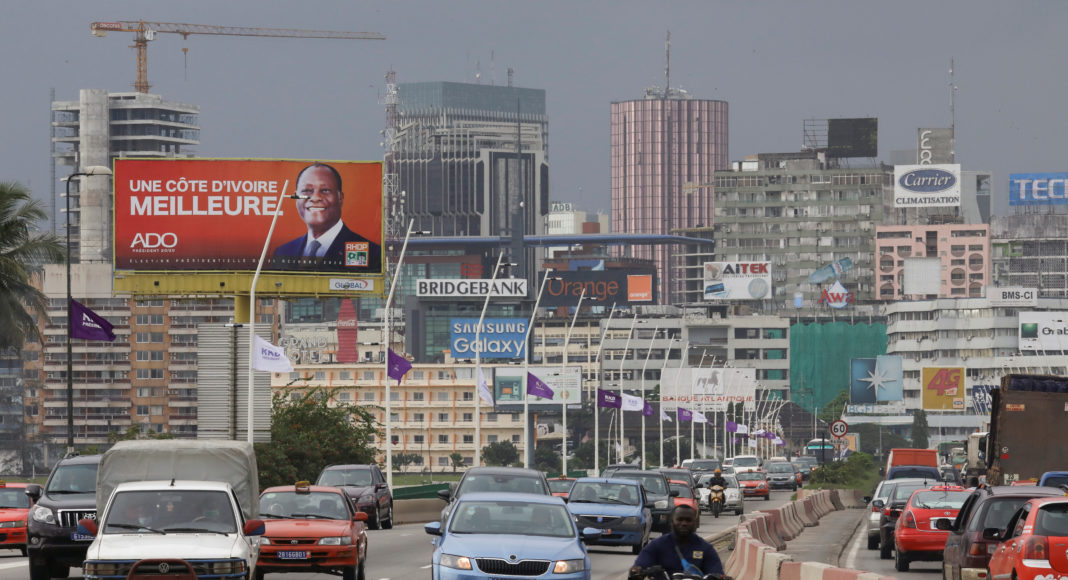By Ahmed Coulibaly
After the outbreak of the Covid-19 pandemic in Côte d’Ivoire in May 2020, the Ivorian authorities set up multiple funds to help the economic sectors in difficulty, including one for small and medium enterprises (SMEs) and one for the informal sector. Despite a track record deemed satisfactory by the government, some Ivorian startups say they have not received support during the pandemic.
In order to be eligibile for the SME fund, a company make over one billion FCFA (USD $1.8m) in income, must be active over the fiscal years 2018 and 2019, and be up to date with its tax and social declarations as of December 31, 2019, according to the Director General of the SME Agency of Côte d’Ivoire. An eligible company’s activities must have been negatively impacted by the pandemic, and managers must also provide a note on the business continuity plan.
Companies with an income of less than 30 million FCFA ($55,400) can benefit from a maximum grant of 500,000 FCFA ($924). Those with an income between 30 million and 150 million FCFA ($277,100) can benefit from an interest-free loan. Companies with an income between 150 million and one billion FCFA will receive financing with an interest rate of 2.5 percent.
Ivorian startups, like companies in the informal sector, have not benefited sufficiently from this government assistance because of conditions they term rigid and opaque. Emmanuel, the head of Kasha Communication, a startup operating in the field of digital communication, explained: “We have not been taken into account by these funds. We applied and we were not selected because the administrative documents required were too onerous. We are only a young company,” he said.
Jean-Noël, head of Strat-Technologie, a startup that innovates in the development of mobile applications, said that the administrative constraints were unfair. “I was shocked by the procedure for acquiring these support funds. The choices were exclusive and if you don’t have someone to guide you or to support your application, it will not be taken into account. The companies who paid their way received funds, and we were victims of this discrimination for lack of means,” he denounced. The Ivorian authorities refused to respond to our request for an interview.
The spokesman for the government, however, Sidi Tiémoko Touré, has asserted publicly that funds are being put to good use, arguing that all sectors impacted by Covid-19 have benefited from support. In an announcement made at the end of the Council of Ministers on October 18, 2020, the Ivorian government cut the budgets allocated to the various sectors impacted by Covid-19 following a partial assessment. Nonetheless, the Ivorian authorities deemed the fund’s balance sheet satisfactory.
The emergency relief fund for the informal sector (FASI) saw 48,152 actors from the sectors of handicrafts (13.7%), trade (58.2%), catering (15.7%), transport (4.1%), culture, leisure (3.6%) and services (4.4%) benefit from government support for a total amount of CFAF 10.7 billion ($19.8m). 55 large companies also benefited from a direct loan within the framework of the emergency relief fund for large enterprises, for a total amount of 14.39 billion FCFA ($26.6m). Those two funds combined accounted for 75.7% of available resources.
According to the government, the Special Solidarity Fund (SSF) is another success story. Cash transfers were made to 143,424 vulnerable households, including 124,285 beneficiaries from greater Abidjan area and 19,139 from the interior of the country.
Support was also provided to 20,706 private sector workers who were laid off or made unemployed. The government’s Covid-19 response plan continues despite the budget deficit, forcing the state to reduce the budgets allocated to the various support funds.
On February 17, the World Bank approved a 163.5 billion FCFA ($300m) loan for Côte d’Ivoire to support the Covid-19 response strategy and revive the private sector.

